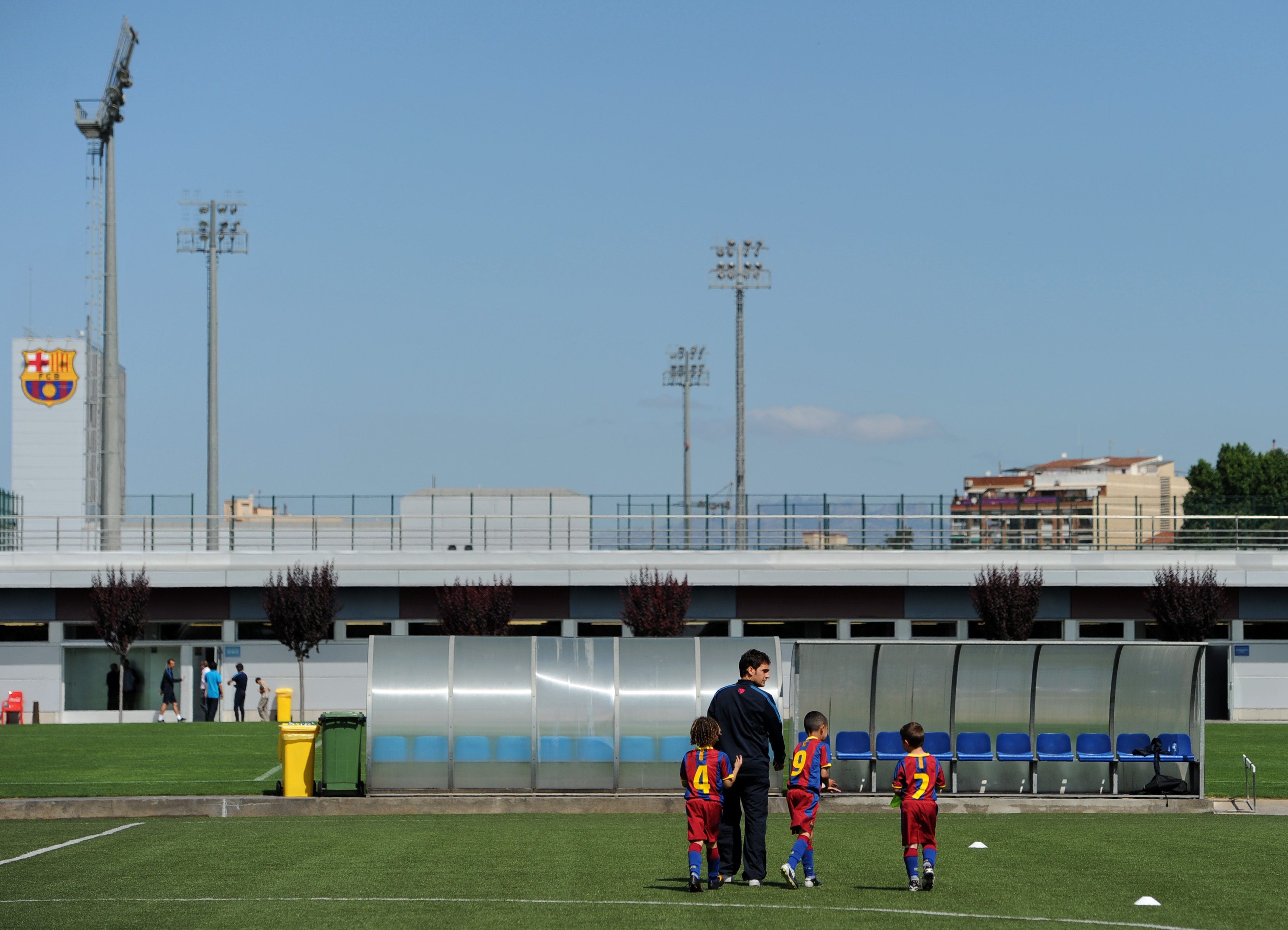Which club has produced the most World Cup winners in the last 30 years?
In the last 30 years (since the 1986 World Cup), we have seen six different nations winning the World Cup. 178 different players have been part of the World Cup-winning squads during this period. Which club academies have produced the most World Cup winners, though?

On Monday, Cristiano Ronaldo added another feather to his cap by winning the inaugural The Best FIFA Men’s Player award in Zurich, and the social media went crazy over the 31-year-old once again.
However, almost no recognition has come the way of CF Andorinha – a Portuguese fifth division club based in Santo Antonio on the small island of Madeira. It was at Andorinha, where the Real Madrid star’s father used to work as a kit man, where Ronaldo had stepped into the world of football at the age of seven. No recognition for Ronaldo’s success has been given to Nacional or Sporting CP, where Ronaldo was groomed to be one of the best in the world.
There are no significant awards in football for clubs and academies who identify talents and hone them. There is no recognition for the scout who must have sat through hundreds to tedious matches in order to spot that one moment of brilliance. We hardly even know the youth coaches who sweat it out on the training ground along with hundreds of children every year to find that one talent which he thinks can make it big.
Then after a few years, the big club swoops in prizes those talents away. The national team’s fortunes are tied to these academies. Barcelona’s dominance translated to Spain’s success, similarly Bayern Munich’s rise has contributed to Germany’s success at the 2014 World Cup. This is not a recent trend as well.
| Rank | Club | No. of World Cup winners | Country | Names of the footballers | ||||||||||
| 1 | Barcelona | 9 | Spain | Gerard Pique, Carles Puyol, Andres Iniesta, Xavi, Cesc Fabregas, Victor Valdes, Sergio Busquets, Pedro, and Pepe Reina | ||||||||||
| 2 | Bayern Munich | 8 | Germany | Klaus Augenthaler, Raimond Aumann, Hans Pflugler, Mats Hummels, Bastian Schweinsteiger, Thomas Muller, Philipp Lahm, and Toni Kroos | ||||||||||
| 3 | Sao Paulo | 6 | Brazil | Cafu, Denilson de Oliveira, Rogerio Ceni, Kaka, Ronaldão, and Müller | ||||||||||
| 4 | Argentinos Juniors | 5 | Argentina | Sergio Batista, Claudio Borghi, Daniel Passarella, Diego Maradona, and Pedro Pasculli | ||||||||||
| 4 | Schalke 04 | 5 | Germany | Olaf Thon, Manuel Neuer, Benedikt Höwedes, Mesut Ozil, and Julian Draxler | ||||||||||
| 6 | Internacional | 4 | Brazil | Taffarel, Branco, Dunga, and Gilmar Rinaldi | ||||||||||
| 6 | Roma | 4 | Italy | Daniele De Rossi, Francesco Totti, Angelo Peruzzi, and Marco Amelia | ||||||||||
| 6 | Vitoria | 4 | Brazil | Dida, Junior, Vampeta, and Bebeto | ||||||||||
| 9 | 1. FC Köln | 3 | Germany | Bodo Illgner, Lukas Podolski, and Ron-Robert Zieler | ||||||||||
| 9 | Flamengo | 3 | Brazil | Zinho, Aldair, and Leonardo | ||||||||||
| 9 | Monaco | 3 | France | Thierry Henry, Lilian Thuram, and Emmanuel Petit | ||||||||||
| 9 | Nantes | 3 | France | Christian Karembeu, Didier Deschamps, and Marcel Desailly | ||||||||||
| 9 | Newell’s Old Boys | 3 | Argentina | Sergio Omar Almiron, Jorge Valdano, and Ricardo Giusti | ||||||||||
| 9 | Real Madrid | 3 | Spain | Iker Casillas, Juan Mata, and Alvaro Arbeloa | ||||||||||
| 9 | Sevilla | 3 | Spain | Carlos Marchena, Sergio Ramos, and Jesus Navas | ||||||||||
| *Only players who have played youth football for these clubs have been considered | ||||||||||||||
The seeds of the success which the Diego Maradona-led Argentine side achieved in Mexico in 1986 were
Maradona was playing for Napoli by the time the 1986 World Cup had arrived, but he was part of the youth team of that famous Argentinos Juniors side which went on to win the 1985 Copa Libertadores. Sergio Batista and Claudio Borghi were part of the team which defeated America de Cali in the final.
However, perhaps the greatest contribution of a single academy to a national team’s success belongs to La Masia. The famed Barcelona academy contributed nine players to the 2010 World Cup-winning team of Spain. As Barcelona dominated Europe under Pep Guardiola, Spain adopted the same style of football with the same set of players.
Bayern Munich nearly repeated that feat by contributing five players to the 2014 World Cup-winning German side. However, there were four key players in that German side who had originated from Schalke’s academy – Mesut Ozil, Manuel Neuer, Julian Draxler, and Benedikt Howedes.
Premier League
Understandably, there are no Premier League clubs in the top-10 contributors of World Winners in the last 30 years. England has continued to struggle in international tournaments, and Premier League clubs are becoming more and more dependent on foreign stars. With money flowing in from all corners, the need to develop British talents has taken a back seat as they continue to raid clubs and academies for talents all across Europe. It is, of course, easier to buy talents, than to develop them.
Manchester United have ‘produced’ two World Cup winners in the last 30 years, technically – Ron-Robert Zieler and Gerard Pique.
Manchester United have ‘produced’ two World Cup winners in the last 30 years, technically – Ron-Robert Zieler and Gerard Pique. Zieler had spent three seasons at the Old Trafford without making any
Similarly, Arsenal lured Cesc Fabregas away from Barcelona’s academy when he was too young to sign a professional contract and so technically, he comes under their youth team product. However, it must be added that Arsenal played a much bigger part in developing

 © Getty Images
© Getty ImagesEverton
Unless, there is a drastic change in the transfer policies of the PL clubs, who are now more and more focussed on luring away young talents from Spain, France, and Germany to their own academies, things are unlikely to improve for the English national team.

Comments
Sign up or log in to your account to leave comments and reactions
0 Comments